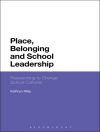Over the last two decades, Eastern Europe has experienced extensive changes in geo-political relocations and relations. Attempts to establish liberal democracies, re-orientations from planned to market economics, and a desire to create ‘new states’ and internationally minded ‘new citizens’ has left some in poverty, unemployment and social insecurity, leading them to rely on normative coping and semi-autonomous strategies for security and social guarantees. Such processes testify to a paradoxical situation between the political attempts to create well-functioning, modern civil societies, and the reliance on normative laws on the margins of society.
This anthology explores aspects of everyday uncertainty, which are defined as ‘grey zones’. Within anthropology, grey zones have been conceived of in relation to political corruption and zones of ambiguity related to violence. Yet, the authors propose to expand the term to include situations where uncertainty and ambiguity have become part and parcel of everyday life and where the indefinable defines the situation. This book views these various grey zones not merely as legacies of socialism but as something in and of themselves; thus it deploys the notion of grey zones in order to find new ways of approaching and conceptualizing current situations in Eastern Europe, ways that are not preconfigured in terms of post-socialism or transition.
Зміст
1. Introduction: What Is a Grey Zone and Why is Eastern Europe One? (Martin Demant Frederiksen and Ida Harboe Knudsen); 2. Living in the Grey Zones: When Ambiguity and Uncertainty Are the Ordinary (Frances Pine); 3. Between Starvation and Security: Poverty and Food in Rural Moldova (Jennifer R. Cash); 4. Brokering the Grey Zones: Pursuits of Favours in a Bosnian Town (Čarna Brković); 5. Good Neighbours and Bad Fences: Everyday Polish Trading Activities on the EU Border with Belarus (Aimee Joyce); 6. Bosnian Post-Refugee Transnationalism: A Grey Zone of Potentiality (Maja Halilovic-Pastuovic); 7. “Homeland is Where Everything Is for the People”: The Rationale of Belonging and Citizenship in the Context of Social Uncertainty (Kristina Šliavaitė); 8. Invisible Connections: On Uncertainty and the (Re)production of Opaque Politics in the Republic of Georgia (Katrine Bendtsen Gotfredsen); 9. The Lithuanian “Unemployment Agency”: On Bomžai and Informal Working Practices (Ida Harboe Knudsen); 10. The Last Honest Bandit: Transparency and Spectres of Illegality in the Republic of Georgia (Martin Demant Frederiksen); 11. Making Grey Zones at the European Peripheries (Sarah Green); 12. Coda: Reflections on Grey Theory and Grey Zones (Nils Bubandt); Index
Про автора
Ida Harboe Knudsen is a Lecturer at the Department of Culture and Society, Aarhus University, Denmark.
Martin Demant Frederiksen is Assistant Professor at the Department of Cross-Cultural and Regional Studies, University of Copenhagen.












